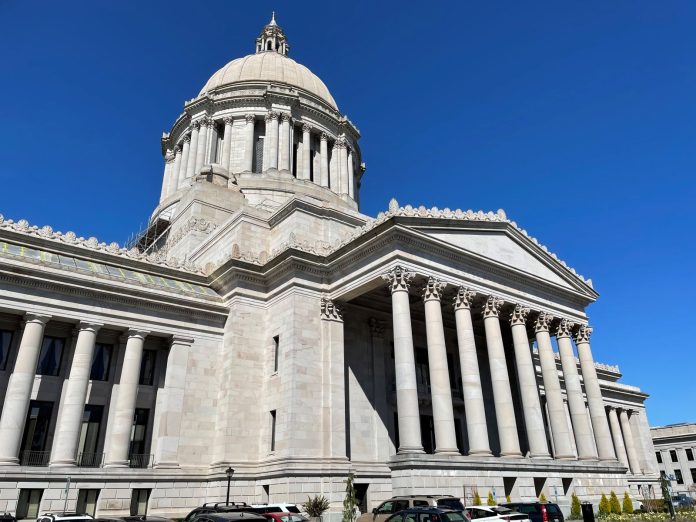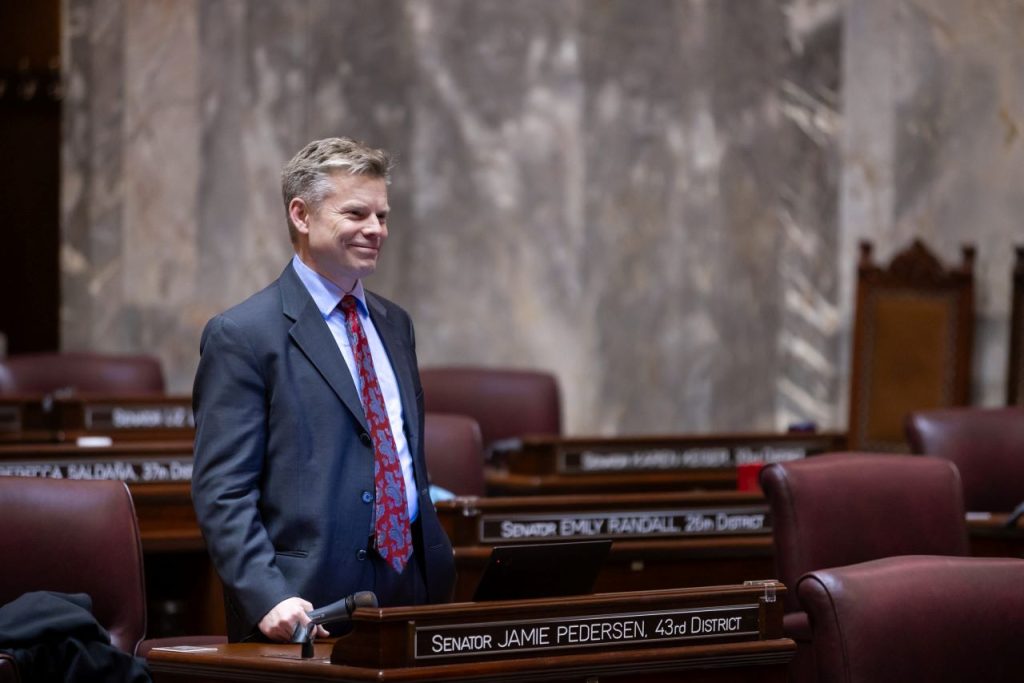
Now that Donald Trump and the Republicans have enacted the budget bill to kneecap government services and hand the wealthy even more money, state and local officials are panicked. They should be.
Washington state will lose at least $3 billion in federal funds for Apple Health each year going forward. As a result, 177,000 low income children and their families in our state will lose SNAP food stamp benefits, and the state will have to come up with $88 million a year just to administer the slimmed down program.
These cuts don’t include the $137 million in public school funding for after-school care, summer learning, and education for children of working immigrants, all of which the Trump administration has just refused to distribute to the states. They are also on top of the cuts that our own legislature made this year, completely defunding early child care for low-income kids, shrinking the number of working class and low income students who will get college grants for tuition, delaying expansion of high quality child care for the kids of working parents… the list of cuts goes on and on.
Some legislative leaders, like Jamie Pedersen (D-43rd, Seattle), the Senate Majority Leader, just want to wait and see. This should be no surprise, as Pedersen is a corporate attorney as well as Executive Vice President, General Counsel, and Secretary for the McKinstry corporation. With his family income between $460,000 and $1.1 million (according to public disclosure records), Pedersen will benefit from the tax breaks for the affluent which are embedded in the Trump legislation.

The state and local tax (SALT) deduction provision alone, allowing affluent people to deduct an extra $30,000 from their income, could save Jamie over $9,000 in taxes. One out of ten tax returns in our state include the SALT deduction. That’s about 450,000 returns. It is hard to believe, but that adds up to over $4 billion of new money for these already affluent residents of our state.
Governor Bob Ferguson and the Legislature could connect the dots between those who are gaining even greater wealth thanks to Trump and the hundreds of thousands of people who are losing health care, food stamps, child care, and K-12 educational necessities. The Governor should convene the Legislature in special session and vote through progressive funding to maintain, rebuild, and expand these public services and many others. Plus, there are relatively simple measures already drafted that, when implemented, would do just that:
- An excess compensation tax on the biggest winners in the federal budget, already written and sponsored by State Senator Rebecca Saldaña (D-37th, Seattle). That would raise over $2 billion a year, with a 5% payroll tax paid by employers for individual compensation exceeding $176,000.
- Close the Microsoft and Amazon loophole which exempts these global behemoths contributing their fair share of funding for the Workforce Education Investment Act. Representative Julia Reed (D-36th, Seattle) tried to eliminate this loophole, but while the Legislature raised the B&O surtax to pay for higher education and apprenticeships, they again capped Microsoft’s and Amazon’s contributions, depriving students of $1 billion a year which would have gone to lower tuition and increased college grants.
- Trump has now exempted $30 million in estates from taxation, so that the children of the uber wealthy gain even more money when their parents die. The Legislature could take the bill they passed in April and increase the tax rate for estates valued in excess of $12 million and close the family foundation loophole. That loophole enables the wealthiest individuals, like Steve Balmer, Bill Gates, Howard Shultz, and Craig McCaw, to redirect their estates to the control of family members and avoid the estate tax altogether. Closing this loophole would dedicate billions of dollars from the uber wealthy to education and health care for Washingtonians.
- Enact a wealth tax on intangible assets exceeding $50 million, as proposed by Senator Noel Frame (D-36th, Seattle). That half of one percent tax on wealth would result in about $1.5 billion a year of new revenue, enabling the Legislature to meet its paramount constitutional duty to provide for the education of all children. The proposal would tax 4,300 of Washington’s wealthiest residents, who altogether make up five one-hundredths of the state’s population — ensuring they pay at least part of their fair share, rather than just celebrate Trump’s massive tax cuts for the megarich.
- Pass a state version of Seattle’s income tax, which the Seattle City Council passed unanimously in 2017. This would have created a 2.25% tax on total income above $250,000 for individuals and above $500,000 for joint filers. The council’s action was confounded by the courts, but if the Legislature were to pass such a bill, using the language of the capital gains tax (defining the tax as an excise tax), then the legal pathway could be clear for at least $3 billion a year for education and health care.
The Governor and the Legislature don’t have to behave like deer caught in the headlights. In a special legislative session they can immediately pass some or all of these proposals into law. Then our state would have the funds to make up for the billions in federal cuts, as well as restoring and expanding state services for education, child care, foster care, and health care for the people of our state.
The money would come from those who benefit from the graft of the Trumpian budget. The more we tax their outsized wealth and privilege, the better for our state and our wellbeing. We don’t have to grovel for crumbs out of the federal budget. Instead, when we put to work these billions in revenue from our own wealthy denizens, we can build our shared economic wellbeing. We can realize a true democracy.

John Burbank (Guest Contributor)
John Burbank founded the Seattle-based Economic Opportunity Institute in 1998 and led it until his retirement in 2021.
